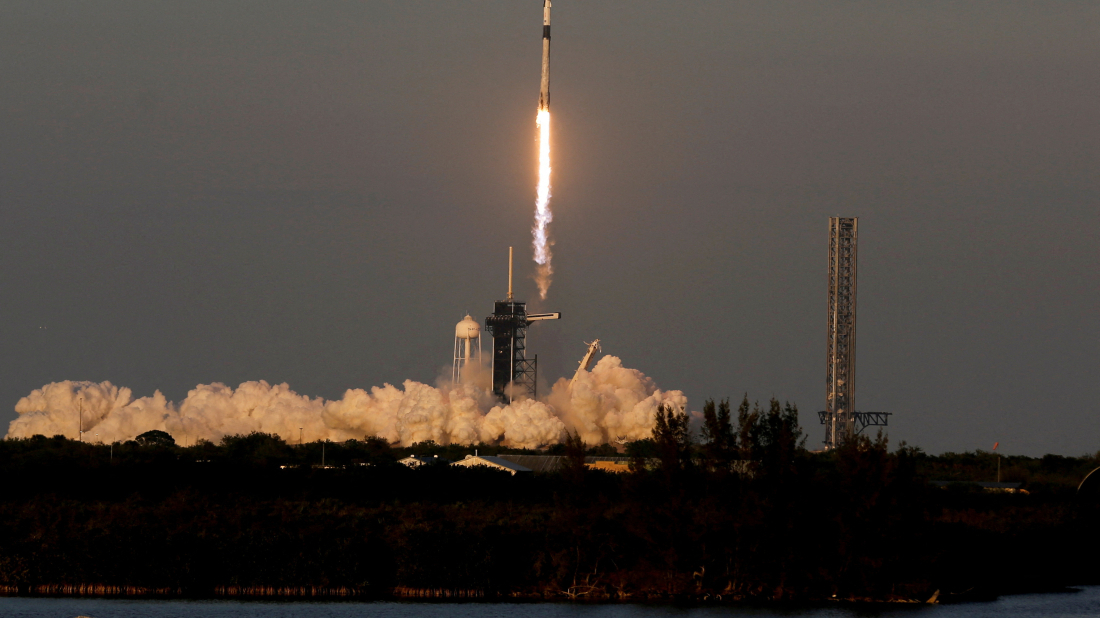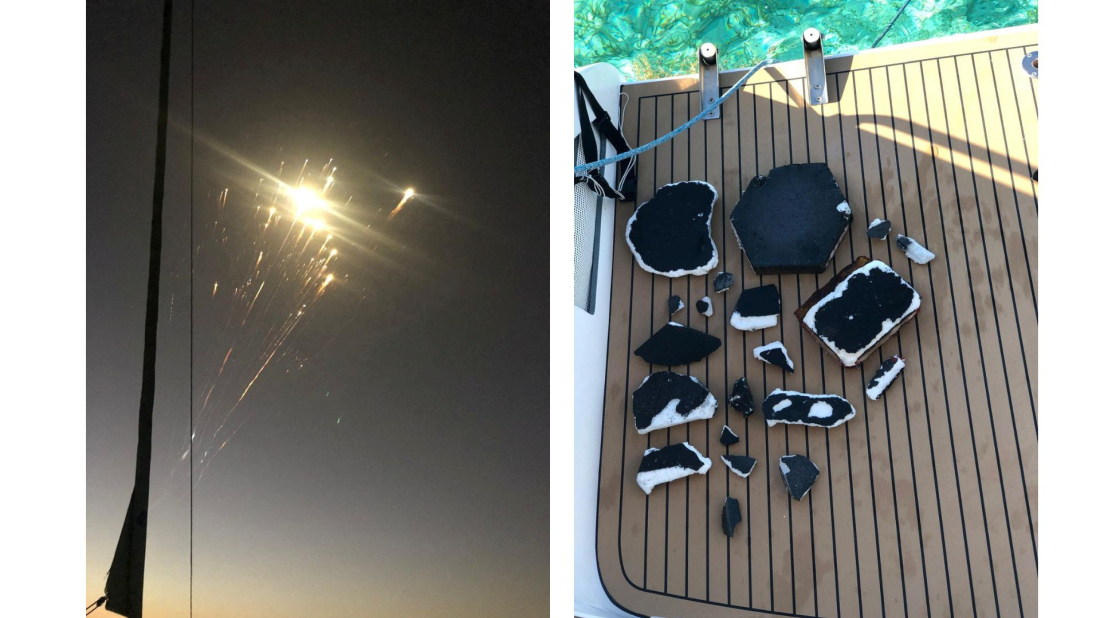Qarabağ FK host Newcastle in Champions League playoff tie
Qarabağ FK are facing Newcastle United in the UEFA Champions League play-off round on Wednesday evening in Baku, in what will be the first UEFA compe...

A high-stakes agreement between SpaceX and the Bahamas to allow Falcon 9 rocket boosters to land in Bahamian waters has been put on hold following political tensions and environmental concerns.
The suspension came two months after the first and only booster landed off the Exuma coast — and just weeks after a Starship rocket exploded mid-flight, scattering debris on Bahamian islands.

“While no toxic materials were detected and no significant environmental impact was reported, the incident prompted a reevaluation of our engagement with SpaceX,” said Chequita Johnson, Acting Director General of the Civil Aviation Authority Bahamas.
The original agreement, signed in February 2024 by Deputy Prime Minister Chester Cooper, was reportedly pushed through without consulting several key government ministers, according to two people familiar with the matter.
Though no laws were broken, the move caused internal frustration.
SpaceX did not respond to requests for comment. Cooper also declined to answer questions about how the deal was arranged.
In exchange for access to its territorial waters, the Bahamas received various incentives.
According to three sources, SpaceX offered complimentary Starlink internet terminals for the country’s defence vessels. The Bahamian military, which operates roughly a dozen vessels, did not comment on the arrangement, and the value of the deal was not disclosed.
Additionally, SpaceX pledged a $1 million donation to the University of the Bahamas and promised to host quarterly seminars on space and engineering.
The company also agreed to pay $100,000 per booster landing under newly enacted Bahamian space regulations.
The Starship explosion on 6 March during a test flight intensified public unease.
The rocket self-destructed nine and a half minutes after launching from Texas, and debris washed ashore on several Bahamian islands.
“I have no strong dislike for the exploration of space, but I do have concerns about the sovereignty of my nation’s airspace,” said Arana Pyfrom, Assistant Director at the Bahamas’ Department of Environmental Planning and Protection.
“The Starship explosion just strengthened opposition to make sure we could answer all these questions.”
Matthew Bastian, a retired Canadian engineer vacationing near Ragged Island, witnessed the Starship explosion from his sailboat.
“My initial reaction was ‘wow that is so cool,’ then reality hit me – I could have a huge chunk of rocket debris crash down on me and sink my boat!” he said.
“Fortunately, that didn’t happen, but one day it could happen to someone.”
Within days of the explosion, SpaceX deployed helicopters, speedboats, and sonar equipment to recover debris.
Locals said the wreckage was hauled from the sea and loaded onto a larger SpaceX vessel typically used to retrieve rocket fairings.
The company’s vice president of launch, Kiko Dontchev, reassured local reporters that Starship was entirely different from Falcon 9 boosters scheduled to land off the Exuma coast.
Joe Darville, chairman of environmental group Save The Bays, criticised both the fallout from the Starship explosion and the secretive nature of the Falcon 9 agreement.
“Something like that should have never been made without consultation of the people in the Bahamas,” he said.
Bahamian officials are currently reviewing SpaceX’s environmental report and considering updates to the country’s space reentry regulations.
Two officials said Falcon 9 landings may resume later this summer if the revised processes are approved.
Pyfrom said the review aims to show “where we fell short, and what we need to improve on.”
Despite the diplomatic setback, SpaceX is pushing forward. Musk said earlier this month that the next Starship launch is expected within three weeks.
Cuba’s fuel crisis has turned into a waste crisis, with rubbish piling up on most street corners in Havana as many collection trucks lack enough petrol to operate.
Ruben Vardanyan has been sentenced to 20 years in prison by the Baku Military Court after being found guilty of a series of offences including war crimes, terrorism and crimes against humanity.
Canadian Prime Minister, Mark Carney, announced on 16 February that the Honourable Janice Charette has been appointed as the next Chief Trade Negotiator to the United States. She's been tasked with overseeing the upcoming review of the Canada-United States-Mexico Agreement (CUSMA).
The Pentagon has threatened to designate artificial intelligence firm Anthropic as a “supply chain risk” amid a dispute over the military use of its Claude AI model, according to a report published Monday.
Israeli airstrikes on southern Lebanon killed two people in 12 hours, Lebanon’s Health Ministry said on Tuesday.
U.S.-mediated talks between Russia and Ukraine in Geneva ended after two days of negotiations that Ukrainian President Volodymyr Zelenskyy described as difficult, while signalling progress on the military track.
Millions of Muslims around the world have begun observing Ramadan, the ninth month of the Islamic lunar calendar and the most sacred period in Islam.
Foreign intelligence services are able to see messages sent by Russian soldiers using the Telegram messaging app, Russia's minister for digital development Maksud Shadayev said on Wednesday, the Interfax news agency reported.
Meta Chief Executive Mark Zuckerberg is expected to testify in a high-profile trial in Los Angeles examining claims that the company’s platforms contributed to youth addiction and mental health harm.
The drumbeats have finally faded at the Marquês de Sapucaí, bringing the competitive phase of the Rio Carnival 2026 to a dazzling close. Over two marathon nights of spectacle, the twelve elite schools of the "Special Group" transformed the Sambadrome into a riot of colour.
You can download the AnewZ application from Play Store and the App Store.

What is your opinion on this topic?
Leave the first comment